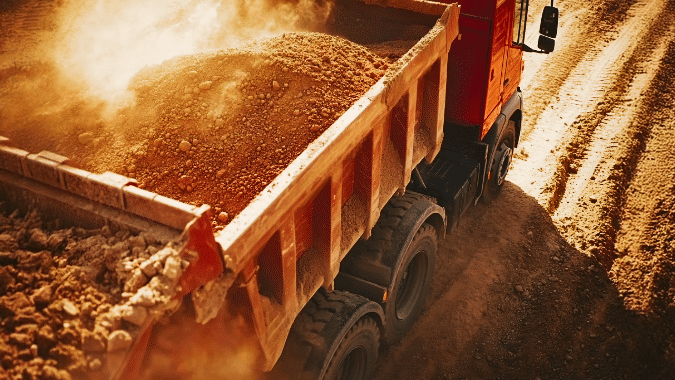Five years ago, Gov. Phil Murphy signed the “Dirty Dirt Law” that closed a loophole which allowed bad actors who otherwise would not qualify for a solid waste license to move contaminated soil.
The law was supported by NJBIA and other business groups. It extended background check and information requirements for A-901 solid waste licenses to soil and fill recycling services in an effort to better counter the influence of organized crime in the industry.
But proposed rules by the state Department of Environmental Protection to implement and expand the Dirty Dirt Law are now kicking up a little dust on their own.
In comments submitted to the DEP, NJBIA Deputy Chief Government Affairs Officer Ray Cantor said these proposed rules will add to and complicate an already complex set of waste and recycling guidelines.
He said they will have major impacts on site remediation properties, the commercial real estate industry and even disadvantaged communities.
“We recommend that the rule be withdrawn, and a new version be proposed that substantially limits its scope,” Cantor said.
“It became obvious in early discussions with the DEP that they saw the Dirty Dirt Law, not as limited, but as expansive. Hundreds, if not thousands, of businesses and individuals, all acting with good faith and in compliance with the law will be engulfed in the requirements of this regulatory proposal.”
Cantor did credit the DEP for its deliberate, inclusive and thorough stakeholder engagement with the rule proposal.
However, here’s where he’s hoping improvements can be made:
Expanding Licensees
The DEP proposed rules take a very expansive view on who needs an A-901 license to be in the “dirt” or “fill” business.
An A-901 application requires an extensive disclosure of personal and business information and needs to pass legal muster by the Office of the Attorney General, New Jersey State Police, the FBI, and other federal and New Jersey agencies.
“The A-901 process is not a simple registration or permitting process,” Cantor said. “It is extremely broad, touches upon numerous people within an organization. It is costly and time consuming.
“Further, the Attorney’s General’s Office is not equipped to handle the deluge of license applications they will receive if these rules are adopted. They can barely process the limited number of applications they currently receive, as well as the annual updates and amendments.”
Cantor added: “When we last checked, there were only one to two attorneys assigned to A-901 submissions assisted by a paralegal. The State Police are also not geared up for this process.
“It already takes well over a year for a submitted application to even be reviewed and another year or longer for it to be processed. Requiring so many new applications to be filed will quickly overwhelm the system.
“We do not need to regulate the entire universe of persons who are involved in dirt movement or recycling in order to weed out bad actors.”
Public Utilities & Contractors
Public utilities will be subject to the A-901 process as part of the DEP’s rule proposal. Cantor recommended that, as highly regulated entities, they should be exempt.
“At the least, the DEP should establish a beneficial use determination for all the soil and other applicable materials they move so as to be exempt from the licensing requirements,” Cantor said.
Cantor also said work under public contracts should not subject a business entity to A-901 licensing requirements.
“Contractors operating under public contracts are also highly regulated and monitored by state and local government officials,” Cantor said. “The activities under these contracts are all done in compliance with the law and the businesses and individuals involved must meet a set of criteria to ensure they are good actors.”
Self-generated Waste
When the Dirty Dirt bill was being considered by the Legislature in 2019, the DEP’s regulations for solid waste contained an exclusion for self-generated waste.
For example, a contractor who dug up a road and had to dispose of the resulting materials, was not considered to be a solid waste hauler and thus did not need to obtain an A-901 license for that activity.
But since the law was passed, DEP has changed the rules so that the self-generation exclusion does not apply.
“It was partly due to the self-generation exclusion, that caused many businesses and contractors to support the dirty dirt bill or at least not object,” Cantor said.
“This exclusion is important for many contractors and should be restored to the rules impacting haulers of soil, recyclables, and other materials.”
LSRPs
The Dirty Dirt law expanded the definition of regulated fill brokers, to include persons engaged in the “provision of soil and fill recycling services” for direct or indirect compensation.
But it also explicitly exempted persons licensed by the state, like Licensed Site Remediation Professionals (LSRPs) and Certified Subsurface Evaluators.
“In the manner in which this rule is crafted, they and their company will still be subject to A-901 licensing if others in the business entity engage in activities covered under the rule,” Cantor said. “This is not what was intended by the Legislature and should be changed.”
Exemptions for Small Hauls
Businesses handling very small quantities of non-restricted soil and fill recyclable materials are not required to obtain the necessary A-901 license or undergo registration, under the DEP rules.
Specifically, businesses generating less than 15 cubic yards of these materials each business day, using trucks with less than 15 cubic yard capacity, and storing less than 100 cubic yards, are exempt, provided they possess all other relevant licenses.
Cantor, however, said those levels are “arbitrary” and “too low.” He recommended those thresholds to be increased to 200 cubic yards.
“They will needlessly impact many small landscaping, contractors, and similar businesses,” he said.




